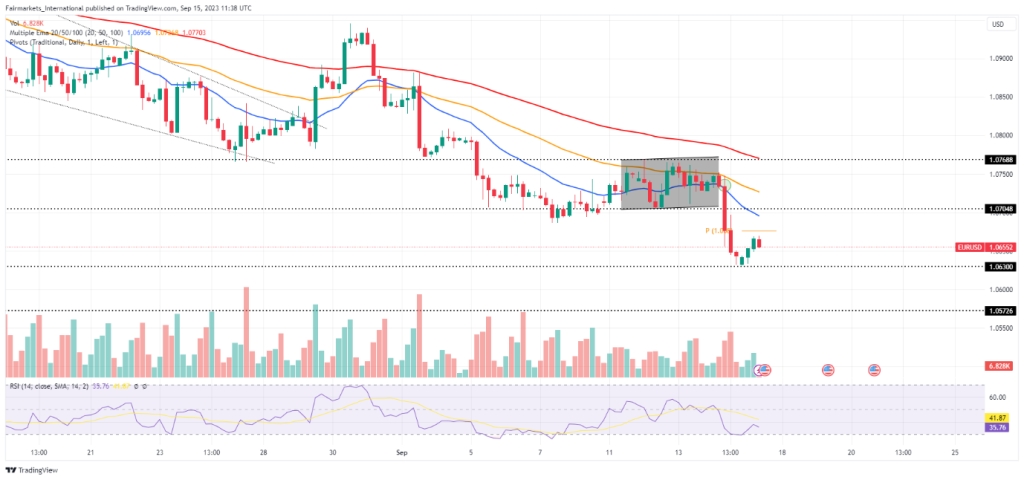Piece written by Mfanafuthi Mhlongo, Trive Financial Market Analyst
In the aftermath of the European Central Bank’s (ECB) surprise rate hike, the EURUSD currency pair witnessed significant turbulence. The euro initially soared following the ECB’s decision to increase rates by 0.25%, reaching levels not seen since May. However, this optimism was short-lived as traders digested the ECB’s forecasts, suggesting the looming spectre of stagflation.
On the flip side of the Atlantic, the US continued to flex its economic muscles with robust retail sales, hotter-than-expected producer prices, and consistently low jobless claims. This reinforced the perception that the US economy is set to outpace the eurozone for the remainder of the year, potentially leading to a divergence in interest rate policies.
ECB President Christine Lagarde indicated that further rate hikes are not off the table but stressed the need to closely monitor core inflation data. The ECB’s economic projections painted a picture of stagflation in 2024, with subdued growth and elevated core inflation.
Technical
On the 4-hour EURUSD chart, the current price is 1.06552, residing below the daily pivot point and key moving averages like the 50-EMA (blue line), 100-EMA (red line), and 200-EMA (orange line). The 100-EMA is above both the 50-EMA and 200-EMA, indicating short-term bearishness. The RSI stands at 35.76, suggesting moderate bearish momentum.
Therefore, failure to breach the pivot point may lead to short-term opportunities at support levels of 1.06300 and 1.05726, signifying a bearish trend continuation. Conversely, trading opportunities could exist if the price breaks above the daily pivot point, targeting resistance levels at 1.07048 and 1.07688.

Summary
In the near term, the EURUSD currency pair faces headwinds, with potentially the support at the 1.06300 level likely to have significance should the price action continue to deteriorate. Meanwhile, all eyes remain on Lagarde’s words and US consumer sentiment figures for potential market direction.
Sources: TradingView, Trading Economics, Reuters, CNBC, MT Newswire, European Central Bank.

